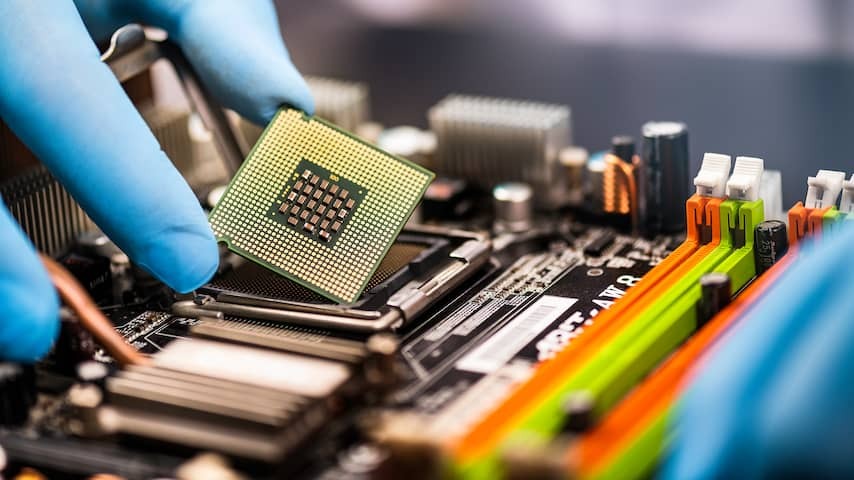
U.S. President Donald Trump announced Wednesday a 100 percent import tariff on “all chips and semiconductors entering the U.S.” Companies that pledge to move their chip production to the U.S. will receive an exemption.
Semiconductors and chips are essential components for smartphones, cars, and medical equipment, among other things. It is not yet clear when the tariff will take effect.
According to the Commerce Department, the U.S. produced about 12 percent of all semiconductor chips worldwide last year. That is 40 percent less than in 1990.
Earlier on Wednesday, Apple announced it would invest another $100 billion (85 billion euros) in the U.S. That was on top of investment plans of $500 billion that were already in place. Trump stated “a very high tariff” during a press moment in the Oval Office on Wednesday. “But the good news for companies like Apple is that if you build in the U.S., you don’t have those costs,” he also said.
If companies “without a doubt” promise to produce their chips in the U.S., they will be exempted from the tariff. They should not try to get out of those promises, the president warned. Then the U.S. will “later charge them for it.”
The president announced the tariff during a press moment, but there has been no official announcement from the White House yet.
Samsung likely exception
According to South Korean Trade Envoy Yeo Han-koo, the measure will not apply to Samsung Electronics and SK Hyinx. South Korea and the U.S. have stipulated in their trade agreement that South Korea will not be imposed a more unfavorable tariff for chips than other countries.
According to Taiwan, the Taiwanese TSMC is also exempt from the tariff. That is the world’s largest chip manufacturer with customers like NVIDIA and Apple. The company has factories in the United States, so it would not fall under the new regulation.